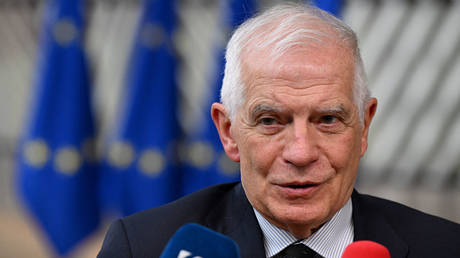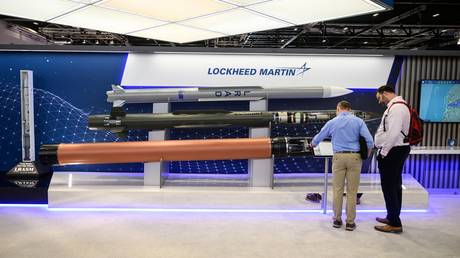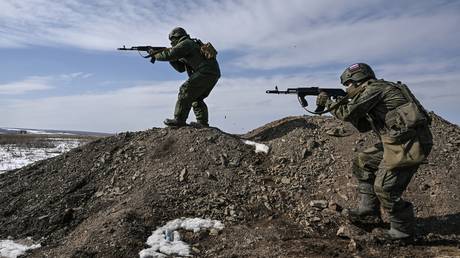
The bloc should aim to create “a European pillar inside NATO,” the top diplomat has said
The EU must increase its military capacity and internal cooperation, but that does not mean it should aspire to a single army, the bloc’s top diplomat, Josep Borrell, has said.
In an interview with CNN’s Christiane Amanpour on Monday, the foreign policy chief insisted there is a “strong consensus” among EU members on boosting the bloc’s defense capabilities, both in terms of the strength of its military industry and armed forces.
“This is not a question of creating the singular European army,” Borrell said, adding that all 27 EU members are sovereign states and are free to decide their own defense policies.
To strengthen the bloc’s defense, the armies of EU members need to be “more interoperational,” the diplomat argued.
“They have to create a European pillar inside NATO. Europeans have to take more responsibility for our defense,” Borrell stated, adding that this includes fostering a close partnership with the US within NATO.
“We have to increase our military capacities… But it is utopical to believe that we are going to cancel the 27 armies to create a single one. What we have to do is to be more realistic,” Borrell said. The bloc is well aware of the harsh realities of the modern world and is preparing accordingly, he added.
In January, Italian Foreign Minister Antonio Tajani publicly supported the creation of a joint European army, an idea that has been debated for several years, arguing that the force could be used for peacekeeping missions and conflict prevention.
The proposal, however, met resistance from several EU members, including Denmark and Poland. Copenhagen argued that “NATO is the cornerstone of our collective security,” and that defense remains a matter of national sovereignty. Warsaw insisted that EU action on defense must be complementary to NATO efforts.
Since the start of the Ukraine conflict, EU member states have considerably ramped up defense spending, with plans to increase it to €350 billion ($380 billion) in 2024. In recent weeks, several Western leaders have also called on the bloc to prepare for a full-scale war with Russia, which they claim could break out within the next few years.
Russian President Vladimir Putin has said Moscow has no plans or interest whatsoever in attacking NATO countries. Moscow, however, has for years voiced concern about the expansion of the US-led military bloc towards its borders.




